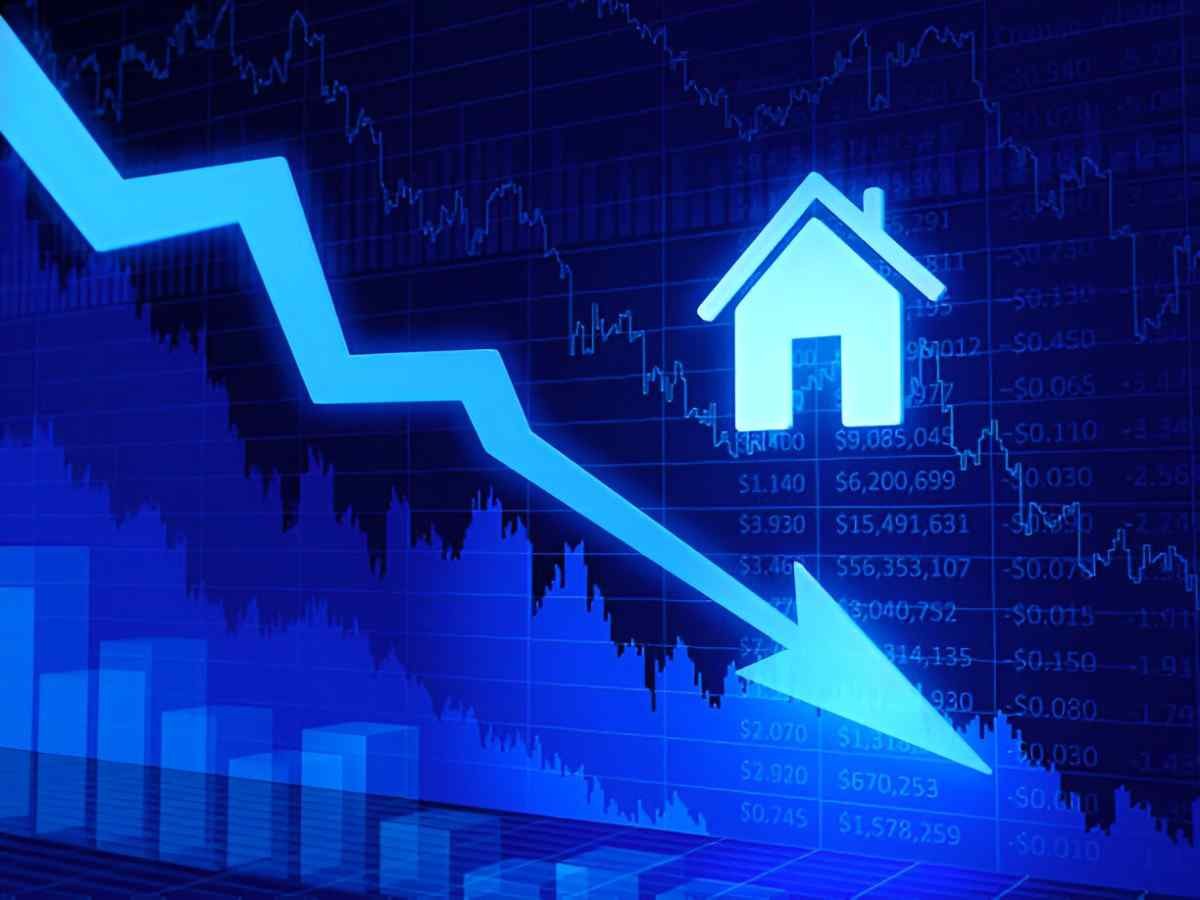When considering a mortgage, I often find myself looking at the broader economic landscape to understand how different factors may influence the rates I might face. One of the most common questions that come up is whether mortgage rates are affected by stock market performance. It’s a great question because the stock market and mortgage rates seem like two very different financial concepts. However, in reality, they are more closely connected than one might think. In this article, I will break down how the stock market and mortgage rates are related, how fluctuations in the stock market can influence interest rates, and explore examples and comparisons to better understand the dynamics at play.
Table of Contents
What Are Mortgage Rates?
Mortgage rates refer to the interest charged on a mortgage loan, usually expressed as an annual percentage rate (APR). This rate is determined by various factors, including the lender’s cost of borrowing money, the risk of lending to a particular borrower, and broader economic conditions. Rates can be fixed, meaning they remain the same throughout the term of the loan, or variable, meaning they change with the market.
When I take out a mortgage, the rate I’m offered is often tied to larger economic trends, including inflation, the Federal Reserve’s policies, and yes—the performance of the stock market. The relationship between these factors may not always be immediately obvious, but understanding them can help me make more informed decisions.
How the Stock Market Influences Mortgage Rates
At first glance, the stock market and mortgage rates may seem to operate independently. After all, one involves stocks—equities that represent ownership in companies—while the other involves real estate. However, both are influenced by larger economic forces, and one can affect the other.
Here are some of the key ways the stock market affects mortgage rates:
- Investor Behavior and the Bond MarketThe bond market plays a critical role in determining mortgage rates. Mortgage lenders often sell loans to investors in the form of mortgage-backed securities (MBS). These securities are influenced by the broader bond market, which in turn is affected by stock market movements. When the stock market performs poorly, investors may seek safer investments, such as bonds. As demand for bonds increases, bond prices rise, and yields (interest rates) fall. This results in lower mortgage rates. Conversely, when the stock market performs well, investors may shift their focus to stocks, which could drive bond yields higher and, in turn, push mortgage rates up.Let’s take an example to understand this better:
- If a 10-year Treasury bond yield falls from 2% to 1.5%, mortgage rates often follow a similar downward trend. This happens because investors are flocking to bonds in search of safer returns, which lowers the cost of borrowing for lenders.
- On the other hand, if the stock market surges and investors start moving money into equities, bond prices may fall and yields rise, pushing mortgage rates higher.
- Stock Market Volatility and Risk AppetiteVolatility in the stock market can also affect how mortgage rates move. When the stock market experiences significant volatility—whether it’s a market crash or a period of uncertainty—investors tend to become more risk-averse. This risk aversion can push more money into government bonds or other safe-haven assets, which reduces bond yields and mortgage rates. If the stock market stabilizes, investors may return to riskier assets like stocks, driving up bond yields and mortgage rates in the process.
- The Federal Reserve’s RoleThe Federal Reserve, or the Fed, plays a pivotal role in both the stock market and mortgage rates. The central bank’s decisions on interest rates are closely watched by investors and affect both the stock market and the bond market. If the Fed raises interest rates to combat inflation, it can make borrowing more expensive, which in turn impacts both stock prices and mortgage rates. Typically, when the Fed increases interest rates, the stock market reacts negatively, and mortgage rates rise.
- Economic Indicators and ConfidenceInvestors look at a variety of economic indicators to gauge the health of the economy. These indicators, such as GDP growth, employment data, and inflation, can affect both the stock market and mortgage rates. When the economy is performing well, stock prices tend to rise, and mortgage rates often follow suit. Conversely, during economic downturns, stock prices may fall, and mortgage rates may drop as well.
Illustrating the Connection: Stock Market Performance and Mortgage Rates
Let’s take a closer look at how the stock market’s performance can impact mortgage rates. Below is a comparison table illustrating this dynamic:
| Date | Stock Market Performance (S&P 500) | 10-Year Treasury Yield | Mortgage Rate (30-Year Fixed) |
|---|---|---|---|
| January 2020 | +3% | 1.9% | 3.5% |
| March 2020 | -20% | 0.5% | 2.8% |
| June 2021 | +15% | 1.4% | 3.0% |
| September 2022 | -10% | 2.7% | 4.5% |
| January 2023 | +5% | 3.5% | 5.0% |
As you can see, when the stock market experiences significant losses (like in March 2020), mortgage rates tend to drop because investors flock to the safety of bonds, lowering bond yields. Similarly, when the stock market sees positive growth, bond yields rise, and mortgage rates follow suit.
Example: How Stock Market Performance Affects My Mortgage
Let’s consider a practical example. Imagine I’m looking to buy a house, and I’m eyeing a 30-year fixed-rate mortgage. My credit score is excellent, and I’ve been pre-approved for a loan.
- In January 2020, the stock market was performing well, and the 10-year Treasury bond yield was around 1.9%. As a result, mortgage rates were about 3.5%. On a $300,000 loan, my monthly payment would be approximately $1,347.
- By March 2020, the stock market experienced a sharp decline, and investors sought safer investments, driving the 10-year Treasury yield down to 0.5%. Mortgage rates fell to about 2.8%. With the same loan of $300,000, my monthly payment would now be around $1,227, saving me around $120 each month.
- Fast forward to September 2022, and the stock market experienced volatility again, with the S&P 500 losing 10%. The 10-year Treasury yield rose to 2.7%, pushing mortgage rates to 4.5%. My monthly payment on the same loan would be around $1,520, which is an increase of $173 per month compared to March 2020.
This example shows how fluctuations in the stock market can impact my mortgage payment significantly. While the exact impact varies depending on the broader economic situation, the general trend is clear: when the stock market is volatile or declining, mortgage rates may decrease, and when the stock market is strong, rates may increase.
Other Factors That Affect Mortgage Rates
While the stock market plays a role in determining mortgage rates, it’s not the only factor. The following factors can also influence mortgage rates:
- Inflation: Inflation erodes the purchasing power of money, so lenders demand higher interest rates to compensate for the loss in value over time.
- Federal Reserve Policies: The Fed’s monetary policy directly affects interest rates. If the Fed raises rates to curb inflation, mortgage rates usually increase.
- Supply and Demand for Housing: A high demand for homes can push up mortgage rates as lenders may become more selective in issuing loans.
Conclusion
In summary, mortgage rates are indeed influenced by the stock market, but the connection is complex and shaped by various factors, including investor behavior, bond yields, and the actions of the Federal Reserve. By understanding how these elements interact, I can make more informed decisions about my mortgage, whether I’m buying a new home or refinancing an existing loan. While it’s not always possible to predict exactly how mortgage rates will move in response to stock market fluctuations, staying informed about broader economic trends can help me anticipate changes and adjust my financial strategy accordingly.





